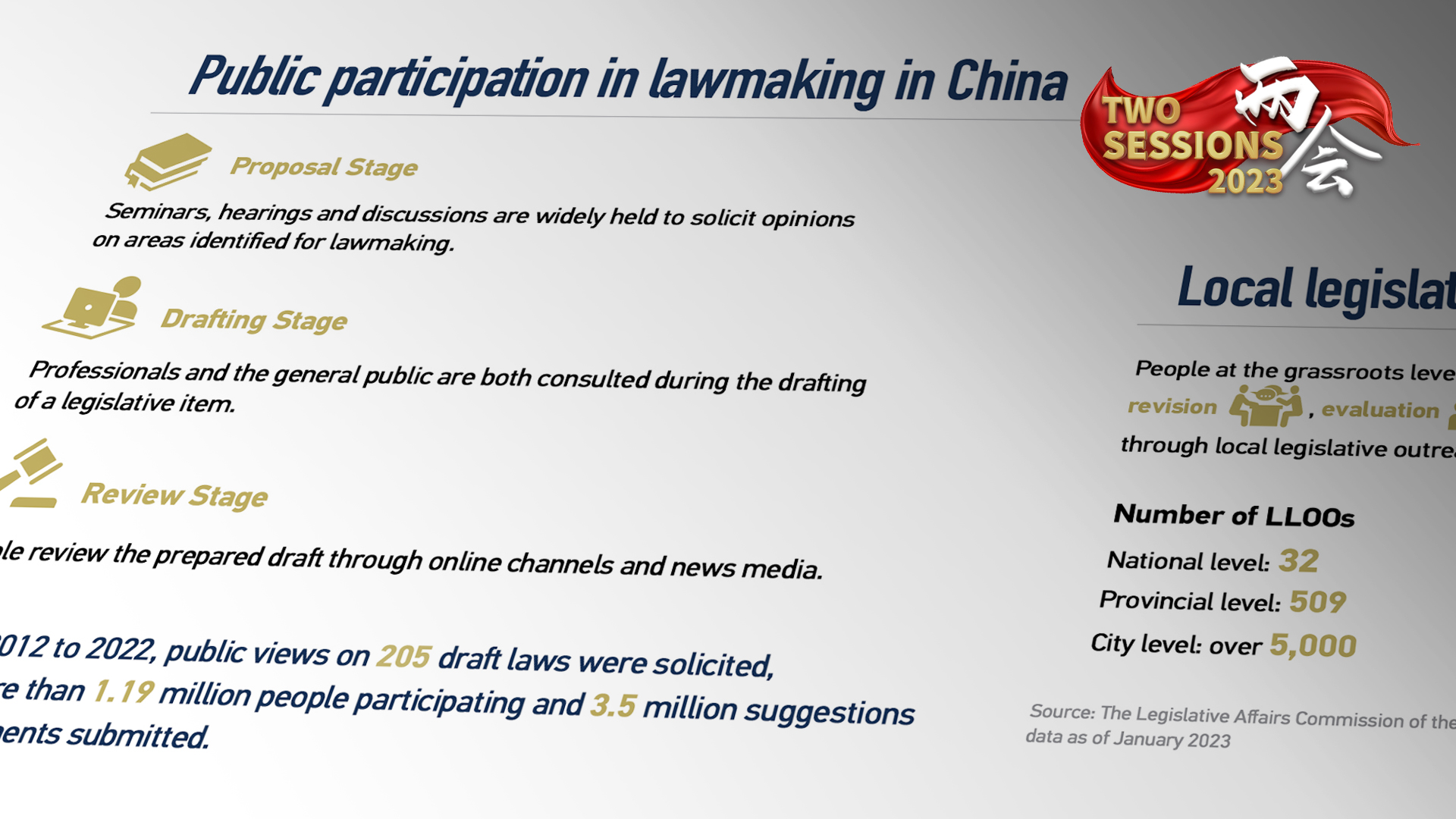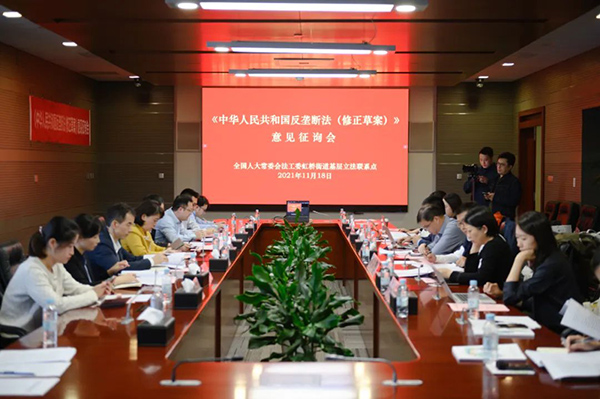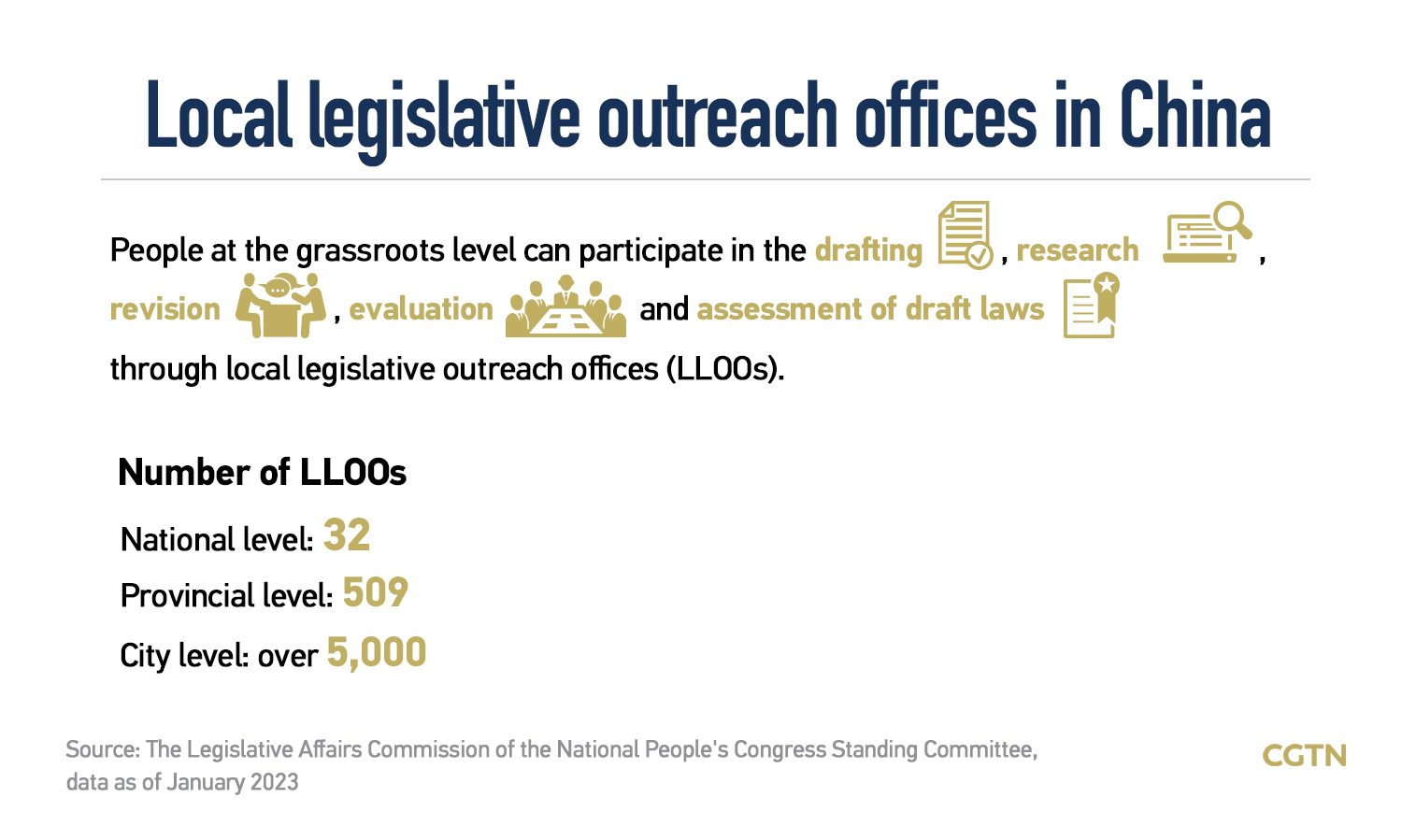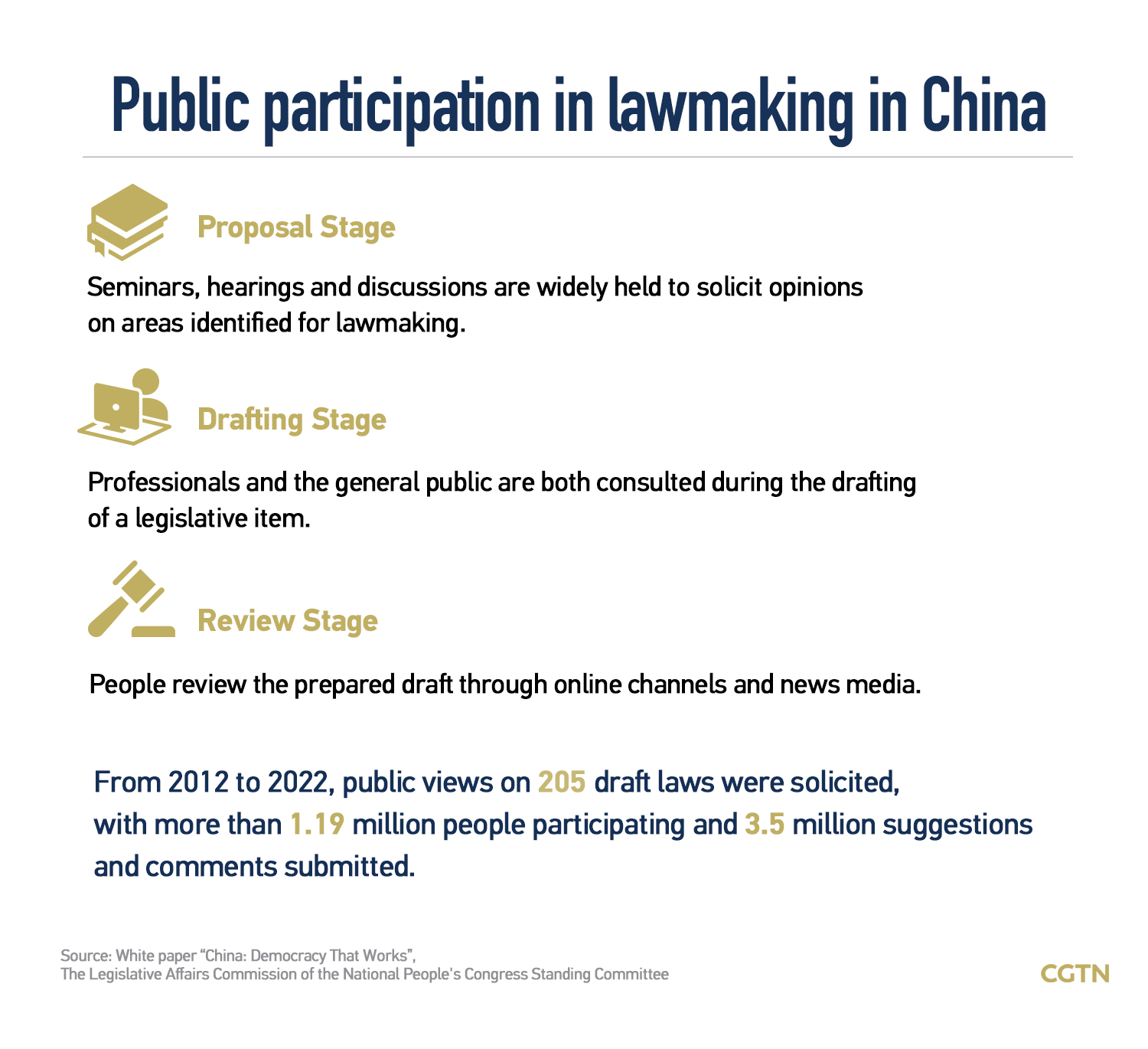
When Chinese lawmakers were revising the Law of the People's Republic of China on Protection of Minors in 2020, students from a high school in Shanghai were asked about their opinions.
One of them, named Li Junhao, voiced concerns about a provision imposing a fine on the guardians of the minors if they fail in their duties.
Li, a student from the High School Affiliated with East China University of Politics and Law in Hongqiao sub-district, said that if a minor came from a poor family, the fine would make the child's life more difficult.
The lawmakers took his opinion seriously, conducted further research on it and adjusted the clause, which was widely supported when the revisions were released for public review.
This was realized through a mechanism called local legislative outreach offices (LLOOs), which was initiated in China in 2015 for lawmakers to reach out to the public and hear their voices directly during lawmaking.
The first such office was set up right in Hongqiao sub-district in Shanghai.
"In China, whether you're an adult or a teenager, as long as you have opinions on the legal system, you can express them," said Sun Zhenping, office director of the Legislative Affairs Commission (LAC) of the National People's Congress (NPC) Standing Committee, when he told the story during the Two Sessions in 2021.
Local legislative outreach offices
The establishment of LLOOs is an important channel China has been practicing to guarantee the public's participation in legislative activities.
People from all walks of life can visit the offices in their areas, share their ideas on legislative issues and get their voices heard by the lawmakers.
Therefore, through such offices, residents at the grassroots level can participate in the drafting, research, revision, evaluation and post-assessment of draft laws in a convenient way.

A consultation meeting is held on the draft amendment to the Anti-monopoly Law at the local legislative outreach office in Hongqiao sub-district in Shanghai, China, November 18, 2021. /Photo from website of the NPC Standing Committee
A consultation meeting is held on the draft amendment to the Anti-monopoly Law at the local legislative outreach office in Hongqiao sub-district in Shanghai, China, November 18, 2021. /Photo from website of the NPC Standing Committee
Over the years, a three-tier system of LLOOs is being set up in China – at the national and provincial levels, as well as the level of cities with districts or autonomous prefectures.
As of January this year, 32 national-level LLOOs have been set up across the country, with one in each provincial region, covering more than 57.7 million people, according to Sun.
Meanwhile, 509 outreach offices have been established at the provincial level and more than 5,000 at the level of cities with districts or autonomous prefectures.
Through the LLOOs, over 15,000 suggestions and comments from residents at the grassroots level have been submitted on 152 draft laws since 2015.
"With the offices, we'll increase exchanges between residents and lawmakers to improve the quality of legislation, contributing more to carrying out the 'whole-process people's democracy' and promoting governance by the rule of law in the new era," Yang Heqing, spokesman of the LAC of the NPC Standing Committee, said at a press conference in August, 2022.

Multiple channels for the public to express their views
Since the 18th National Congress of the Communist Party of China in 2012, China has expanded channels to listen to people's voices at every step of the lawmaking process, including drafting, deliberation and adoption of legislative items, Xu Anbiao, deputy head of the LAC of the NPC Standing Committee, said at a press conference in April 2022.
When a piece of legislation is proposed, seminars, hearings and discussions are held to widely solicit public opinion, so that the people's will is reflected from the very first stage of legislation, according to a white paper titled "China: Democracy that works," which was released by the State Council Information Office in December 2021.
When a law is being drafted, professionals and the public are both consulted, and now third parties are entrusted to draft laws and regulations on a trial basis, the white paper said.
When a draft law is released, it is subject to public review from online channels and news media.
Public opinion has played a significant role in the lawmaking process over the past 10 years, ensuring laws and regulations embody the people's common will and interests, Xu said.
From 2012 to 2022, public views have been solicited on 205 draft laws, with more than 1.19 million people participating and 3.5 million pieces of suggestions and comments submitted, according to Xu.

Take the compilation of China's new Civil Code as an example.
Dubbed as an "encyclopedia on social life," the code consists of 1,260 articles in seven volumes, covering almost every aspect of people's lives. It was approved on May 28, 2020, and took effect on January 1, 2021.
Prior to its final passage, 10 versions of the drafts were published on the NPC Standing Committee's official website from 2015 to 2020 to widely solicit public opinion. Meanwhile, the drafts were also printed and sent to deputies to the NPC, relevant departments, local people's congresses and LLOOs for their feedbacks.
Through these efforts, more than 1.02 million pieces of opinions and suggestions were collected, and the staff at the legislative organs sorted out and researched all of them to make sure that voices from all groups were respected, researched and reflected in the law, according to the LAC of the NPC Standing Committee.